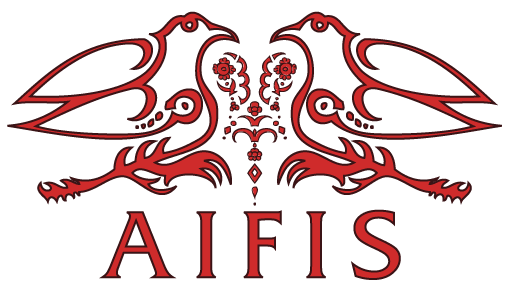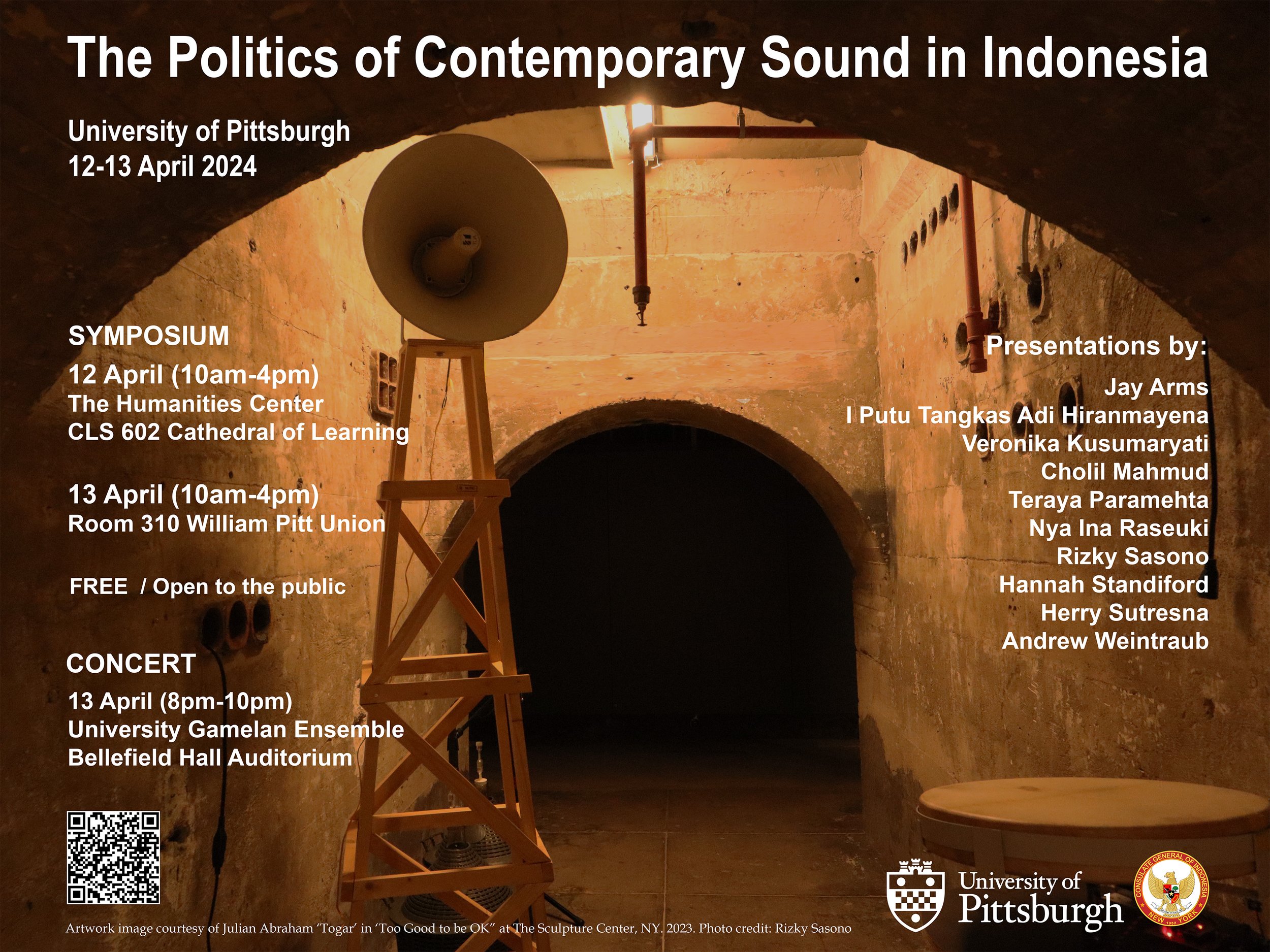Register now and secure your spot to listen and opportunity to engage with scholars from Indonesia and around the world who will be presenting on many great topic related with Indonesian Studies!
*Limited slots available
For more info: https://tinyurl.com/AIFISMSUCOIS2024
AIFIS-MSU Conference on Indonesian Studies 2024, Registration is Now Open!
REGISTRATION IS OPEN!
Don't miss out on the opportunity to join and participate in the 2024 AIFIS-MSU Conference! Secure your spot now and immerse yourself in a world of knowledge, collaboration, and inspiration. Please note that we have two different registration methods to accommodate scholars based in Indonesia, the United States, and other international locations. After clicking the registration link please choose the one that is applicable to you. For any questions about the conference please contact us at conference@aifis.org.
Register today and be a part of this transformative event: https://tinyurl.com/AIFISMSUCOIS2024
The AIFIS-Luce Small Grants Final Round Application is Still Open!
Exciting News! The AIFIS-Luce Small Grants application is still open! Don't miss your chance to secure funding for your innovative projects in Indonesian studies. Apply now and take your ideas to the next level!
The Politics of Contemporary Sound in Indonesia – A Symposium University of Pittsburgh, April 12-13, 2024
Abstract
Reformasi, the political era following the 1998 breakdown of the New Order regime in Indonesia, opened new possibilities for Indonesian performing arts. Performers began blurring the lines between mediums and cultural disciplines as well as challenging the boundaries between the contemporary and the traditional. After 1998, musicians’ interest in exploring tradition was not based in nostalgia or New Order imperatives towards "preservation.” Instead, traditional practices were integrated into more fluid contemporary sound practices, hybrid forms, and new media.
Inspired by Sapto Rahardjo's gamelan and technology innovations in the mid-1990s, younger generations of experimental musicians followed with even more diverse forms of reference and imagination. Popular genres, such as dangdut and heavy metal, yielded spinoff genres (e.g., koplo) and new public expressions of Islam (as seen in the all-female band Baceprot), respectively. Nya Ina Raseuki’s 2007 album Kroncong Tenggara completely reimagined traditional forms of kroncong (Indonesian string band music). Indonesia’s music scenes fused with neoliberal approaches to music that elevated underground sounds to popular circulation.
In contemporary Indonesia, musicians continue to blur the lines between “mainstream” and “underground” sounds. Despite the current period of stagnant reform (reformasi dikorupsi), sound still serves as a medium for “the political.” These politics take different forms including critiques of the state by hip-hop act Homicide, articulations of human rights violations by the indie-rock group Efek Rumah Kaca, and performances of “apolitical politics” by the women’s chorus Dialita. Other examples of “the political” in music include cultural movement approaches, such as the experimental duo Senyawa, the netlabel Yes No Wave, and Festival Musik Rumah which celebrates off-the-radar musicians through annual online festivity.
New sound practices have made Indonesia’s soundscape livelier, louder, more diverse, and more exciting than ever. In approaching “sound as form” and “sound as cultural practice,” we ask: How does sound relate to the political dimension of culture? What forms of sound define politics? What are the constraints and possibilities of a new “sound politics” in Indonesia today?
CFA — “The Year of Choosing Dangerously: Anticipating the Impact of the 2024 Elections in the Indo-Pacific and the United States”
The East-West Center (EWC) is partnering with the Association for Asian Studies (AAS) to build a “Network of Networks” bridging the U.S. and the Indo-Pacific. As part of the EWC’s Research Innovation & Collaboration Exchange (RICE) initiative, this collaboration is designed to support experts and public intellectuals from Asia and the U.S. through writing workshops, conferences, and joint publications.
The project aims at generating critical analysis on issues that broadly relate to the 2024 elections. With almost two billion voters heading to the polls in Asia and in the United States, the results of this electoral year will affect most of the world’s population in terms of trade and investment, foreign policy, economic migration, climate change commitments and the future of global democracy and human rights, amongst other issues. The combined effect of these individual elections will likely have significant and lasting repercussions.
The AAS is pleased to invite applications from early career scholars and practitioners from Asia and the U.S. to participate in a workshop on “The Year of Choosing Dangerously: Anticipating the impact of the 2024 Elections in the Indo-Pacific and the United States,” supported by the East-West Center. This workshop is convened by the Association for Asian Studies and will be hosted by the East-West Center in Washington, DC, May 8-9, 2024.
The two-day workshop is designed to foster conversations between and across various geographical, political, and economic vantage points and publications in EWC’s Asia Pacific Bulletin and/or Occasional Paper Series. This gathering will create an opportunity to debate the implications of a selection of electoral outcomes for maintaining regional peace and anticipating how a possible change in U.S. leadership could shape the future of international order. Workshop participants will be invited to examine the extent to which these elections will have serious implications on many fronts that include, but are not limited to, trade and diplomacy, borders and migrations, international cooperation on security and defense, human rights, and global climate actions. Additionally, participants will gain skills in navigating the political ecosystem of Washington, DC, networking, policy writing, and promoting their work on social media.
Feeling for Life: Indonesian Music Special with Marty Hatch
Emeritus Professor Martin F. Hatch of Cornell’s Departments of Music and Asian Studies will be a featured radio guest on Friday, January 26, 2024, in a special episode of the “Crazy Words, Crazy Tune” program, on WRFI Community Radio hosted by Roger Kimmel Smith. The program is entitled “Feeling for Life: Indonesian Music Special with Marty Hatch,” and will include extensive interview segments revealing how Professor Hatch’s curiosity and interest in gamelan music led him to pursue ethnomusicology, and eventually spurred him to found the Cornell Gamelan Ensemble in 1972.
The program can be heard at 88.1 FM in the Ithaca area, and 89.7 FM across a wider swath of the southern Finger Lakes, as well as over a live stream at https://www.wrfi.org/ Following the January 26 broadcast, the program will be available for two weeks for listening on demand at: https://www.wrfi.org/wrfiprograms/crazy-words-crazy-tune/
AIFIS will certainly be tuning in!







